By Joseph Kwesi Appiah, Political Economist & Policy Strategist
Ghana’s cocoa sector, a cornerstone of the national economy, faces a critical juncture as the 2025/2026 farm gate price announcement approaches. Expectations are high, but the economic realities behind these hopes demand sober attention.
As Ghana prepares to announce the cocoa farm gate price for the 2025/2026 season, excitement is rising across cocoa-growing regions. Farmers and purchasing clerks are holding back their beans, hoping to benefit from a promised price increase. Last season’s historic price surge and sustained high global cocoa prices have fueled these expectations.
However, this optimism overlooks a key economic reality. Despite strong international prices, the Ghanaian cedi has rapidly strengthened against the US dollar. This currency appreciation reduces the local currency value of cocoa exports, eroding the gains farmers expect.
At the same time, widespread hoarding is limiting the volume of cocoa on the market. This disrupts supply dynamics and risks inflating prices artificially.
This article offers a clear economic and policy analysis of why the 2025/2026 cocoa price increase may be more illusion than reality. It also explores the implications for Ghana’s cocoa farmers and the long-term sustainability of the sector.
The Numbers Behind the Optimism and the Reality
The 2024/2025 cocoa season created a perfect storm for high prices. Global cocoa prices peaked at USD 10,000 per metric ton, while the Ghanaian cedi weakened to between GHS 14.7 and GHS 16.8 per US dollar. This combination enabled COCOBOD to set a record farm gate price of GHS 49,000 per metric ton (approximately GHS 3,100 per 64kg bag), sparking widespread optimism among farmers.
The outlook for 2025/2026, however, tells a different story. Although global prices remain relatively high at around USD 9,446 per metric ton, the cedi has strengthened sharply to about GHS 10.2–10.3 per US dollar. While a stronger cedi helps control inflation and lowers import costs, it simultaneously reduces the local currency value of export earnings.
| Season | World Price (USD/MT) | Exchange Rate (GHS/USD) | Export Value (GHS/MT |
| 2024/2025 | 10,000 | 15.75 (avg) | 157,500 |
| 2025/2026 | 9,446 | 10.25 (avg) | 96,765 |
What Farmers Often Overlook
Many farmers expect the farm gate price to rise in line with high global cocoa prices. However, this overlooks a critical reality: cocoa is traded internationally in US dollars, but farmers are paid in Ghanaian cedis.
When the cedi strengthens against the dollar:
- Exporters receive fewer cedis per dollar earned.
- Government revenue from cocoa exports declines in local currency terms.
- The government’s capacity to increase the farm gate price diminishes.
In essence, a stronger cedi reduces the cedi value of cocoa exports, creating the illusion that high global prices automatically translate into higher local earnings. This currency dynamic lies at the heart of the cocoa price illusion.
Economic Constraints Meet Political Realities
The government faces a difficult balancing act ahead of the 2025/2026 season:
- Significant price increase: Politically appealing, especially in an election year, but economically unsustainable. Raising prices sharply would strain COCOBOD’s finances, potentially increasing debt or requiring costly subsidies.
- Maintaining the current price: Economically prudent but risks political fallout. Farmers may feel shortchanged, leading to unrest or loss of trust in policymakers.
- Modest price adjustment (most likely): A moderate increase, such as raising the farm gate price to between GHS 53,000 and GHS 54,000 per metric ton (approximately GHS 3,320–3,400 per 64kg bag), balances economic realities with political pressures. This approach offers some relief to farmers while mitigating fiscal risks and partially offsetting currency effects.
This delicate trade-off underscores the complexity of managing cocoa prices amid fluctuating global markets and domestic economic constraints.
The Hard Economic Reality
Several financial pressures constrain the possibility of a significant farm gate price increase:
- Exchange Rate Effect: The stronger cedi reduces cocoa export revenue per ton by over 38% compared to the previous season.
- Operational Costs: Rising domestic expenses continue to strain COCOBOD’s finances.
- Debt Overhang: COCOBOD faces substantial repayments on legacy debt and bond obligations.
- Smuggling Risk: Setting prices too low risks incentivizing smuggling to neighboring countries where prices are pegged to weaker currencies.
What Farmers Should Expect
Farmers should expect a moderate price increase rather than a windfall. The projected farm gate price is likely to range between GHS 53,000 and GHS 54,000 per metric ton, equivalent to about GHS 3,320 to GHS 3,400 per 64kg bag.
This adjustment reflects the impact of currency fluctuations on dollar-denominated export revenues rather than poor sector performance. Without significant political subsidies or increased borrowing, any farm gate price beyond this range would be economically unsustainable.
The Bitter Truth Behind Ghana’s Cocoa Export
The illusion that a strong cedi and high global cocoa prices automatically lead to higher farm gate prices must be firmly dispelled.
While a stronger cedi helps control inflation and reduce import costs, it simultaneously diminishes the local currency earnings of exporters and farmers. This economic reality is unavoidable and must shape policy decisions.
Sustainable growth in Ghana’s cocoa sector depends not on yearly farm gate price hikes but on bold structural reforms, including:
- Investing in local value addition to process cocoa into finished goods, thereby capturing more value domestically and creating jobs.
- Diversifying exports to reduce dependence on cocoa and buffer the economy against commodity price shocks.
- Implementing robust financial reforms to manage COCOBOD’s debt burden, improve transparency, and strengthen institutional capacity.
Without these measures, Ghana’s cocoa farmers will remain vulnerable to volatile global markets and currency fluctuations. Policymakers must confront this reality with clear-eyed pragmatism and strategic vision to secure a resilient and prosperous future for Ghana’s cocoa industry.
About the Author
Joseph Kwesi Appiah is a respected political economist and policy strategist with extensive expertise in commodity markets and the cocoa value chain. As Executive Director of the Centre for Development Integrity Africa (CDI-Africa), he advocates for sustainable agriculture, improved farmer livelihoods, and inclusive economic development through sound policy and market reforms.










